Going through the Bible in 52 Weeks has been transformative but goes extremely fast! We are in week 21 and I noticed that it was a bit challenging for many, my aunt suggested doing a deep dive for one chapter on Tuesdays so that people can engage even if they are not caught up with the chapters. I loved that idea! The educator in me came out and I thought, “WORKSHEETS” and ways to study the bible. Tonight we are studying the Bible Survey Method.
So for the past few weeks, on Tuesdays via Zoom (You can join us here), I have introduced different methods for studying the bible! Everyone is engaged, learning, and APPLYING the new understanding to their lives. That is the goal of studying the Bible, allowing it to transform you. But if you don’t understand then the transformation can be hindered.
I decided to bring it here so that you too can be a part of it!
Grab your free worksheet here for a limited time here
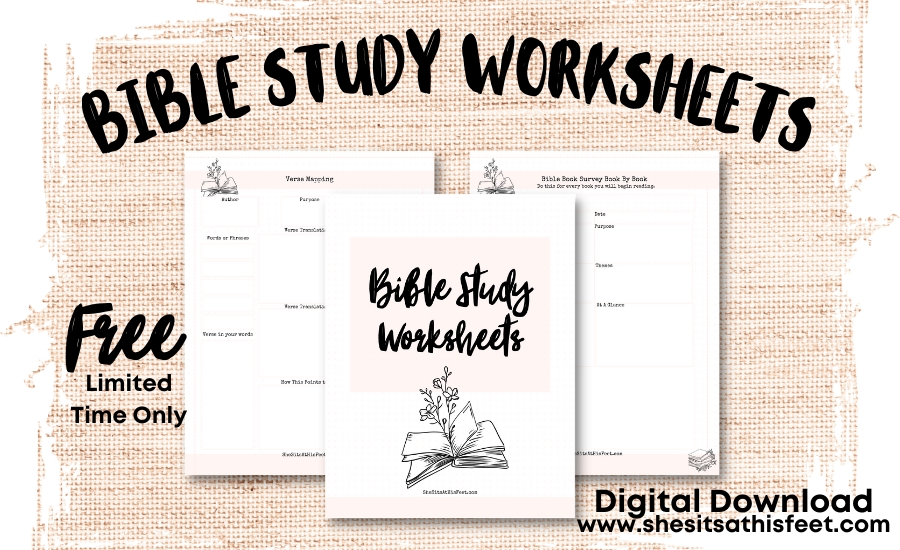
Bible Survey Method
One thing I love about the Bible Survey Study Method is that it is like a scavenger hunt. You are a sleuth, looking for the answers! This is what God wants from us, to dive deep, abide, and soak in His word!
I usually do this right before starting a new book and today, we are starting Luke. I have read it already and studied it but I didn’t do the Bible Survey Method and let me tell you, reading it with that context allows me to see so much more.
Conducting a Bible survey, which involves studying each book of the Bible systematically, has its purpose and benefits, here are a few:
Purpose:
- Comprehensive Understanding: The primary purpose of a Bible survey is to gain a comprehensive understanding of each book in the Bible. It allows readers to explore the content, context, themes, and messages of every book.
- Spiritual Growth: Bible surveys can deepen one’s faith and spiritual growth by providing insight into the teachings and principles found within the Scriptures.
- Contextual Insight: It helps readers grasp the historical and cultural context in which each book was written, enhancing the interpretation of its content.
- Theological Perspective: A Bible survey enables individuals to view the Bible as a unified whole, understanding how each book contributes to the broader theological narrative.
- Application: It offers practical insights and guidance for applying the lessons and messages from the Bible to daily life.
Benefits:
- Comprehensive Knowledge: By studying each book systematically, individuals acquire a well-rounded knowledge of the entire Bible, rather than just a few familiar passages or stories.
- Contextual Clarity: A Bible survey provides the necessary context to interpret Scripture accurately. It helps avoid misinterpretation or misapplication of verses by considering the historical, cultural, and literary factors.
- Spiritual Enrichment: Engaging in a Bible survey can lead to a deeper spiritual connection and a stronger relationship with God as readers explore His Word more thoroughly.
- Doctrinal Understanding: It helps individuals understand the doctrinal foundations of their faith and the teachings of Christianity as presented in the Bible.
- Enhanced Teaching and Preaching: For pastors, teachers, and leaders, a Bible survey equips them to better teach and preach the Word of God, providing a broader scriptural context for their messages.
- Personal Reflection: A Bible survey can be a transformative and reflective experience. It encourages personal growth, self-examination, and a greater sense of purpose.
- Unity and Fellowship: Studying the Bible together as a group through a survey can foster unity, shared understanding, and fellowship among believers.
- Problem-Solving: It can help address theological questions or concerns and provide clarity on specific topics or passages that might be unclear.
- Inspiration: Delving into the Bible through a survey can inspire creativity, devotion, and a sense of wonder as readers discover new aspects of Scripture.
So conducting a Bible survey allows the opportunity for a deeper and more comprehensive understanding of the Bible’s content, context, and message, leading to spiritual growth, doctrinal clarity, and enhanced personal and communal experiences of faith. It equips individuals with a holistic knowledge of the Scriptures, enabling them to apply its teachings to their lives and share its wisdom with others.
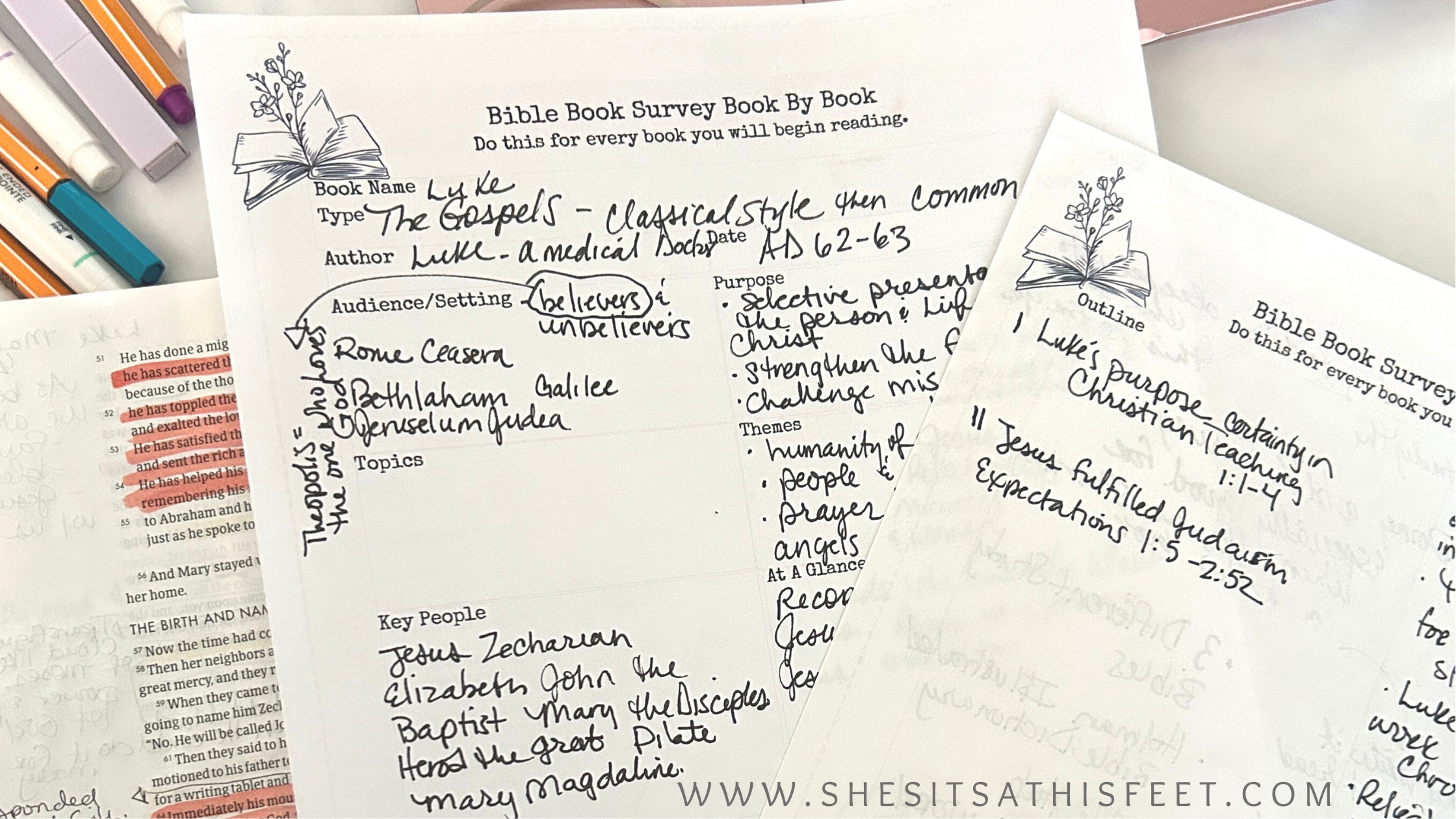
Here’s a general outline of what you would need to focus on for each book in your Bible Survey:
- Book Title and Authorship:
- Start with the basic information about the book, including its title and traditionally attributed author(s).
- Historical and Cultural Context:
- Provide the historical and cultural context in which the book was written. Explain the key events, figures, and societal norms of the time.
- Purpose and Audience:
- Discuss the primary purpose of the book. Was it written as a historical account, prophecy, letter, or other forms of literature? Who was the intended audience?
- Key Themes and Messages:
- Identify and explain the central themes and messages of the book. What are the key theological, moral, or spiritual lessons it conveys?
- Structure and Outline:
- Break down the book into its major sections or chapters. Provide an outline to help readers understand the book’s structure.
- Significant Characters:
- Highlight important characters within the book, including major figures, prophets, leaders, or other significant individuals.
- Key Verses and Passages:
- Select and discuss key verses or passages that are particularly noteworthy or impactful. Explain their significance in the context of the book and the broader biblical narrative.
- Literary Style and Genre:
- Describe the literary style and genre of the book. Is it historical narrative, poetry, prophecy, parable, or something else? How does the genre affect the interpretation?
- Historical and Theological Significance:
- Explain the historical and theological significance of the book within the Bible as a whole. How does it contribute to the overarching biblical narrative?
- Interpretive Challenges:
- Address any interpretive challenges or controversies associated with the book. Are there varying interpretations or disputed meanings of certain passages?
- Application to Modern Life:
- Discuss how the book’s teachings and messages can be applied to contemporary life. Provide practical insights or lessons that readers can apply to their faith or daily living.
- Notable Commentaries and References:
- Recommend notable commentaries, scholarly works, or references that readers can consult for a deeper understanding of the book.
- Discussion Questions:
- Include discussion questions or reflection prompts at the end of each chapter or section to encourage readers to engage with the material and apply it to their lives.
- Conclusion and Summary:
- Summarize the key takeaways from the book and its relevance within the broader biblical narrative.
- Bibliography and Further Reading:
- Provide a bibliography of sources used in your research and suggest additional resources for readers who wish to explore the book further.
Remember to approach each book with sensitivity to its unique characteristics and messages while also considering its place within the larger context of the Bible. Providing historical, literary, and theological insights will make your Bible survey book informative and valuable to readers seeking a deeper understanding of the Scriptures.
I hope you are getting excited to dig deep into your word! If you need a little challenge, start here! Grab the She Sits at His Feet 30-Day Challenge
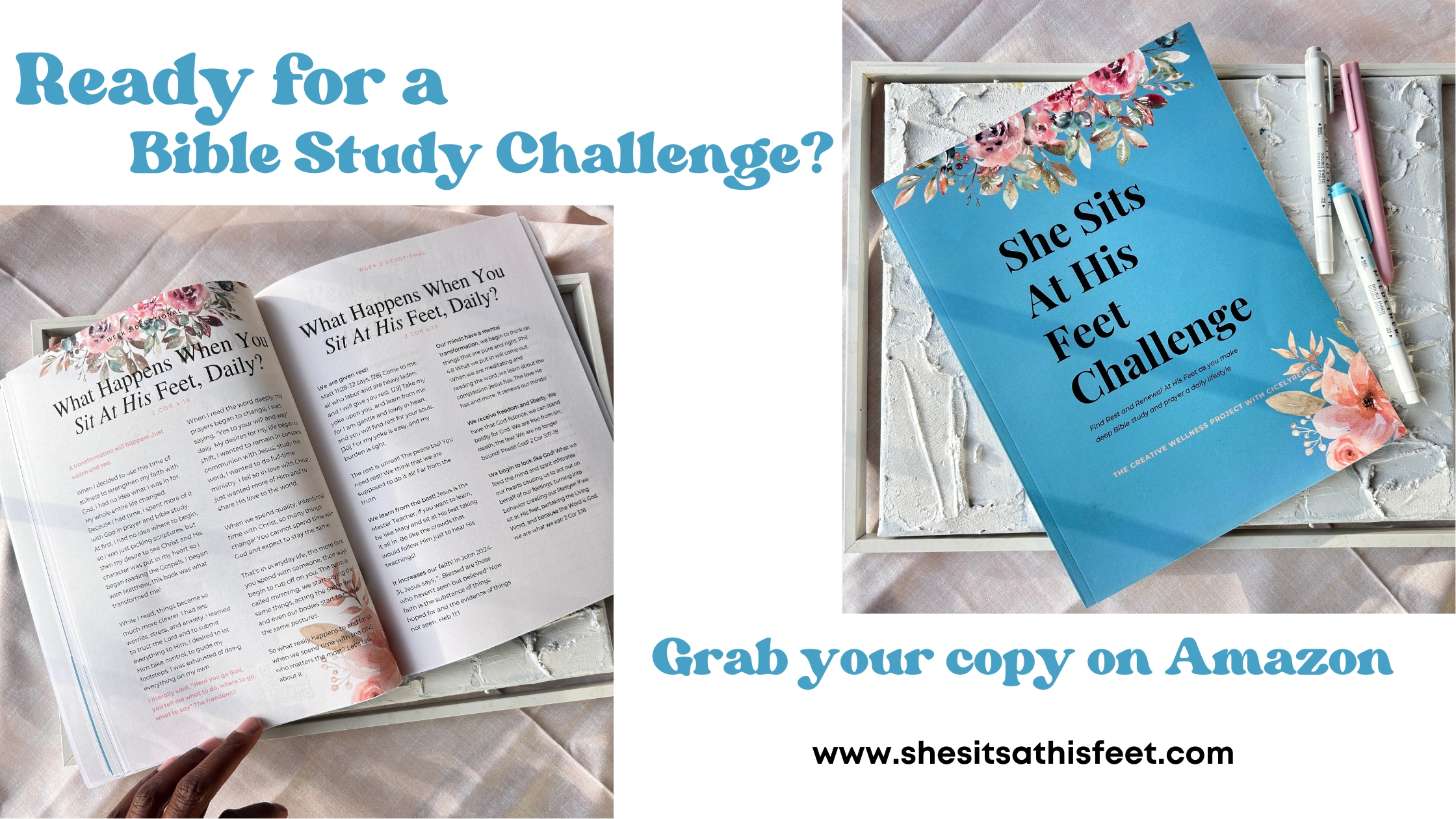
Resources:
- Study Bibles
- Use the intro page, go over all of the information, and write down key things that stand out to you.
- I use: Tony Evans Study Bible, She Reads Truth Study Bible, and NKJV Study Bible
- Bible Dictionary
- Gives some amazing information. A regular dictionary just won’t cut it.
- I use: the Holman Illustrated Bible Dictionary
- Online Resources
- Bible Hub
- There are outlines, timelines, summaries, questions and so much more! My favorite
- Enduring Word
- This is a commentary.
- Bible Hub
- Worksheets
Check out my study resources in more detail.
Bible Study Plan
- Start with Prayer, asking the Holy Spirit to reveal things to you
- Don’t rush it, spend at least 30-45 minutes researching
- Don’t feel the need to complete it in one sitting
- Write write write- writing it out rather than just reading it is so much more impactful
- Reflection- Write your thoughts, what you are looking forward to, what God is revealing to you
- Keep a journal/binder to put all your worksheets in
Okay… so that was a lot of information… your turn
- What do you think about this method?
- Will you use it?
- Have you used it?
- What questions do you still have about it?
Would love to hear about all your thoughts!
Peace and Blessings,
Cicely
Please PIN These
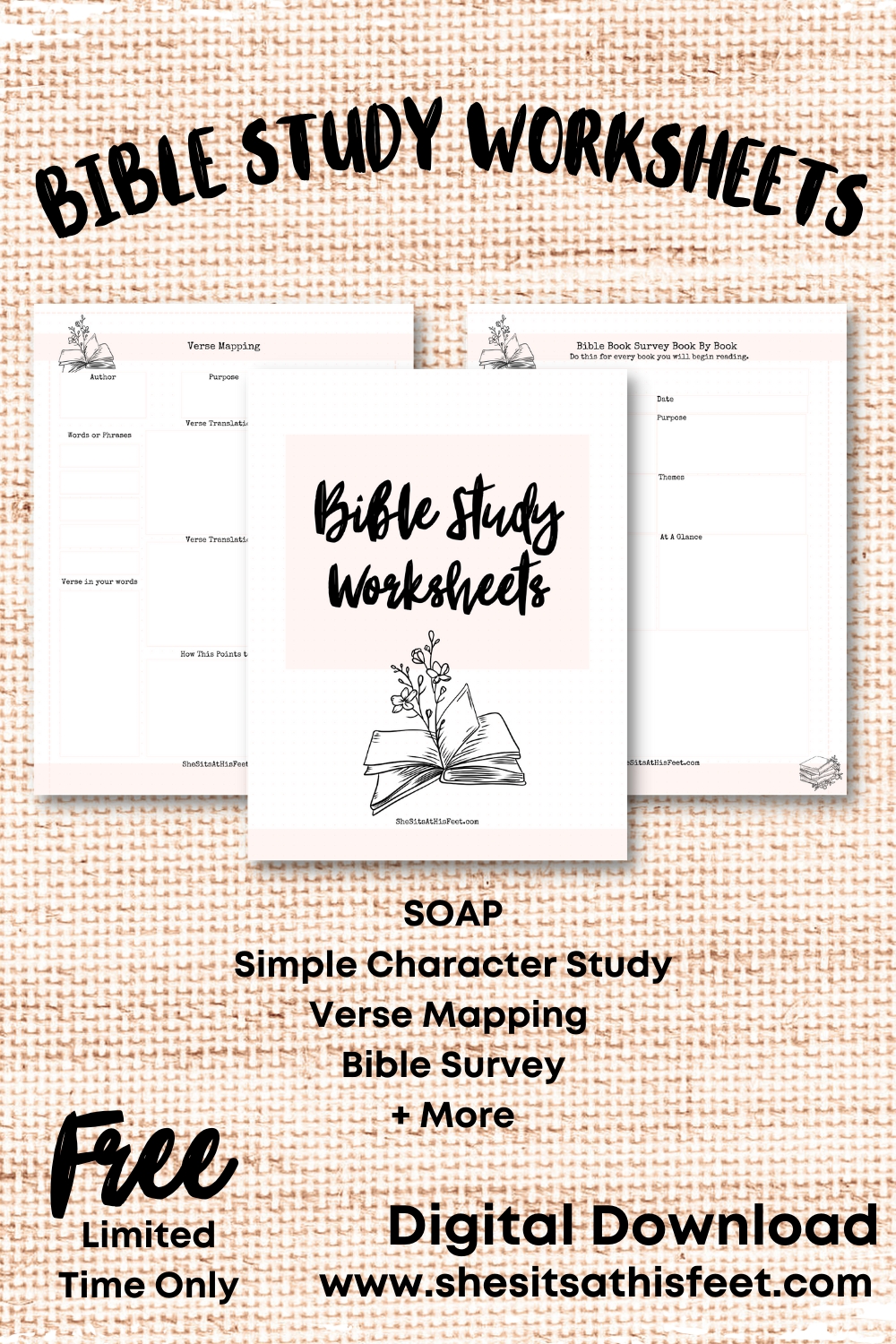





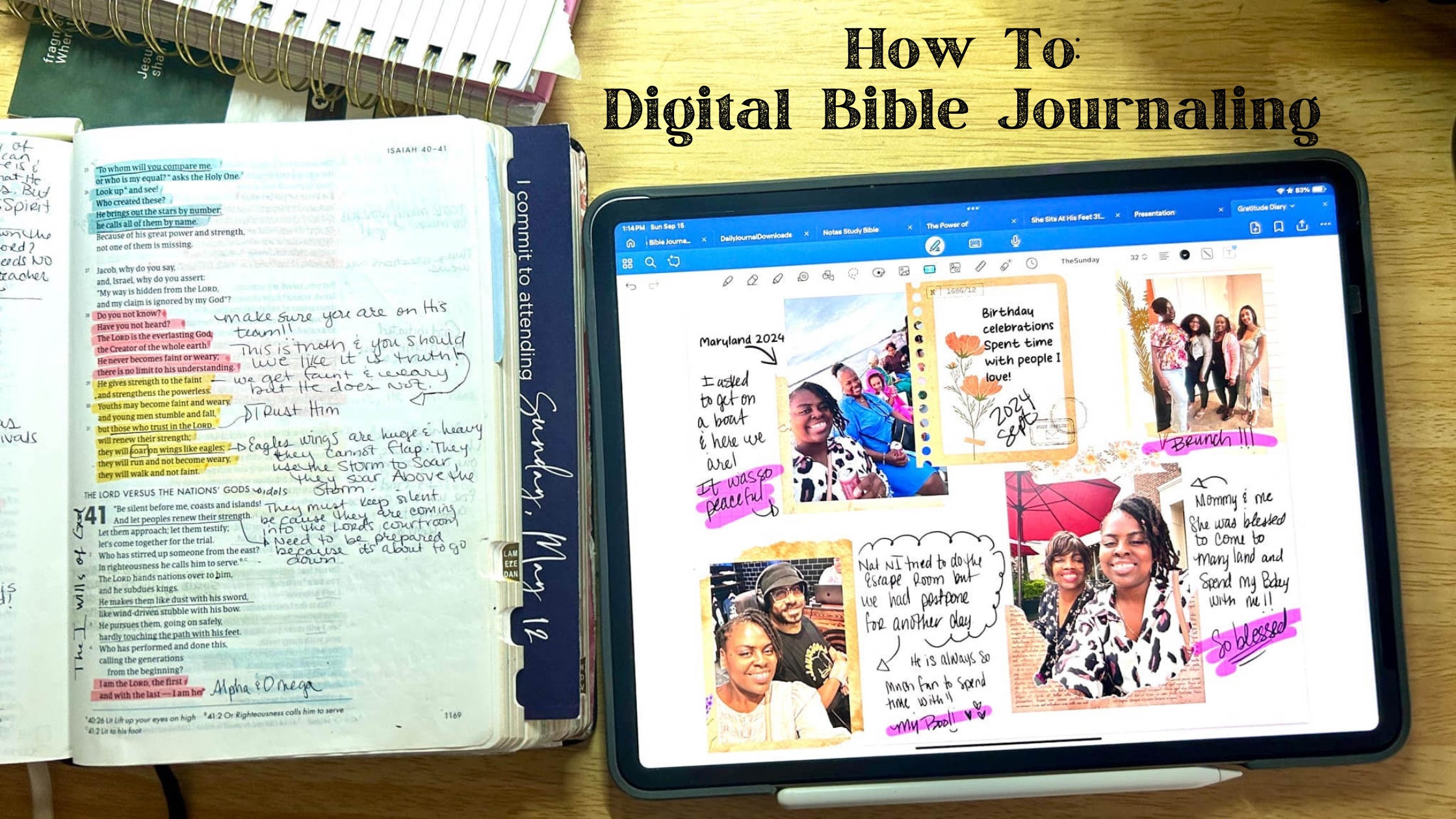



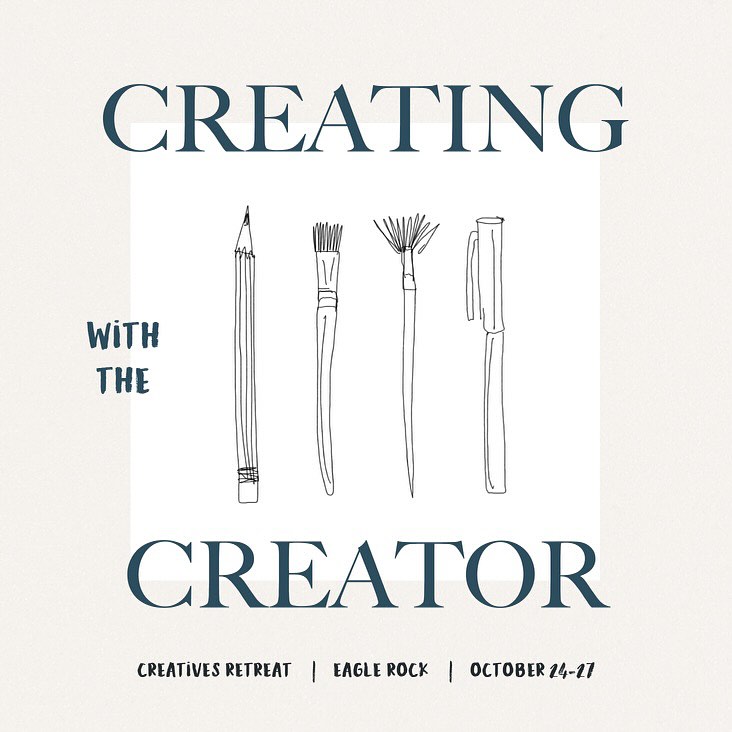



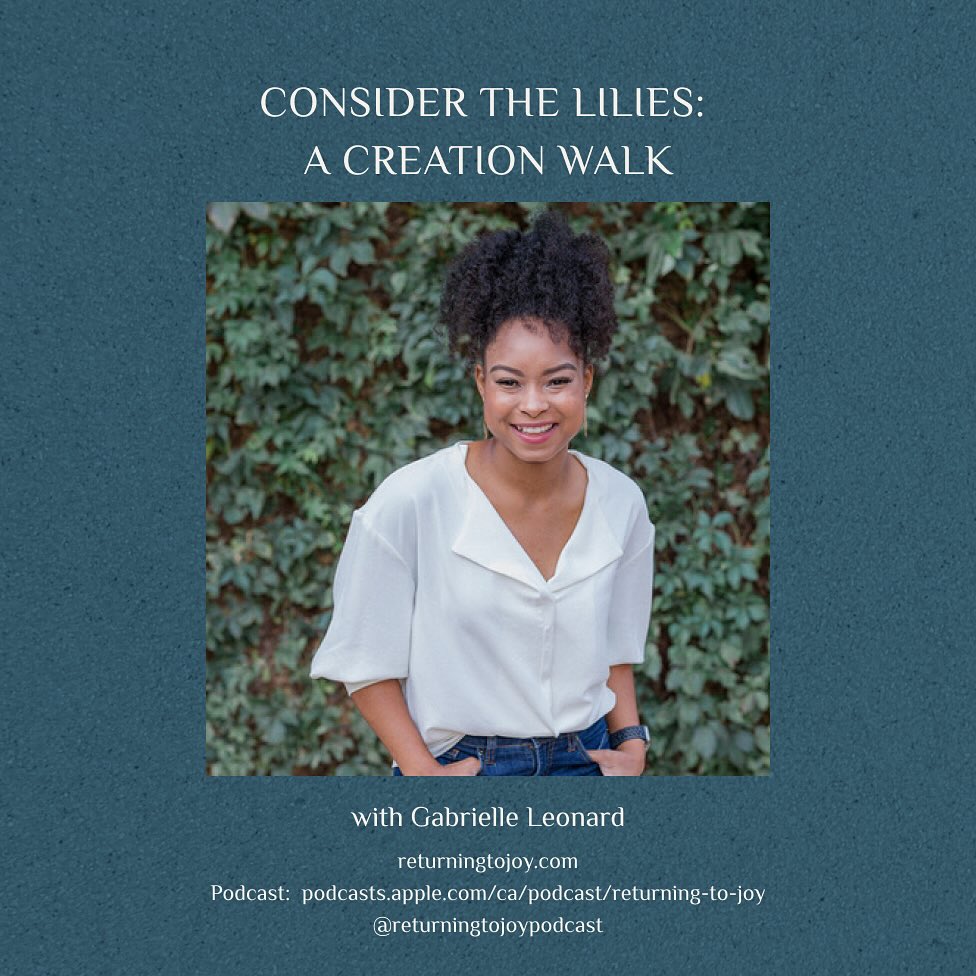
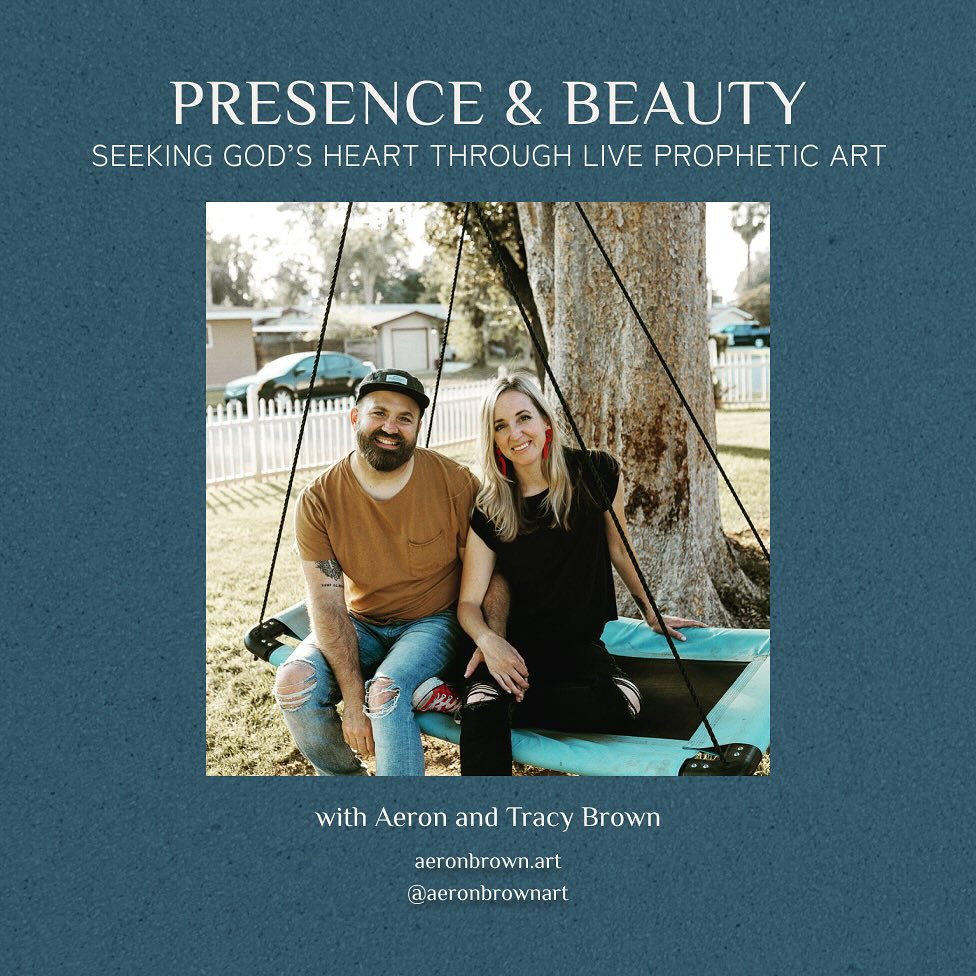
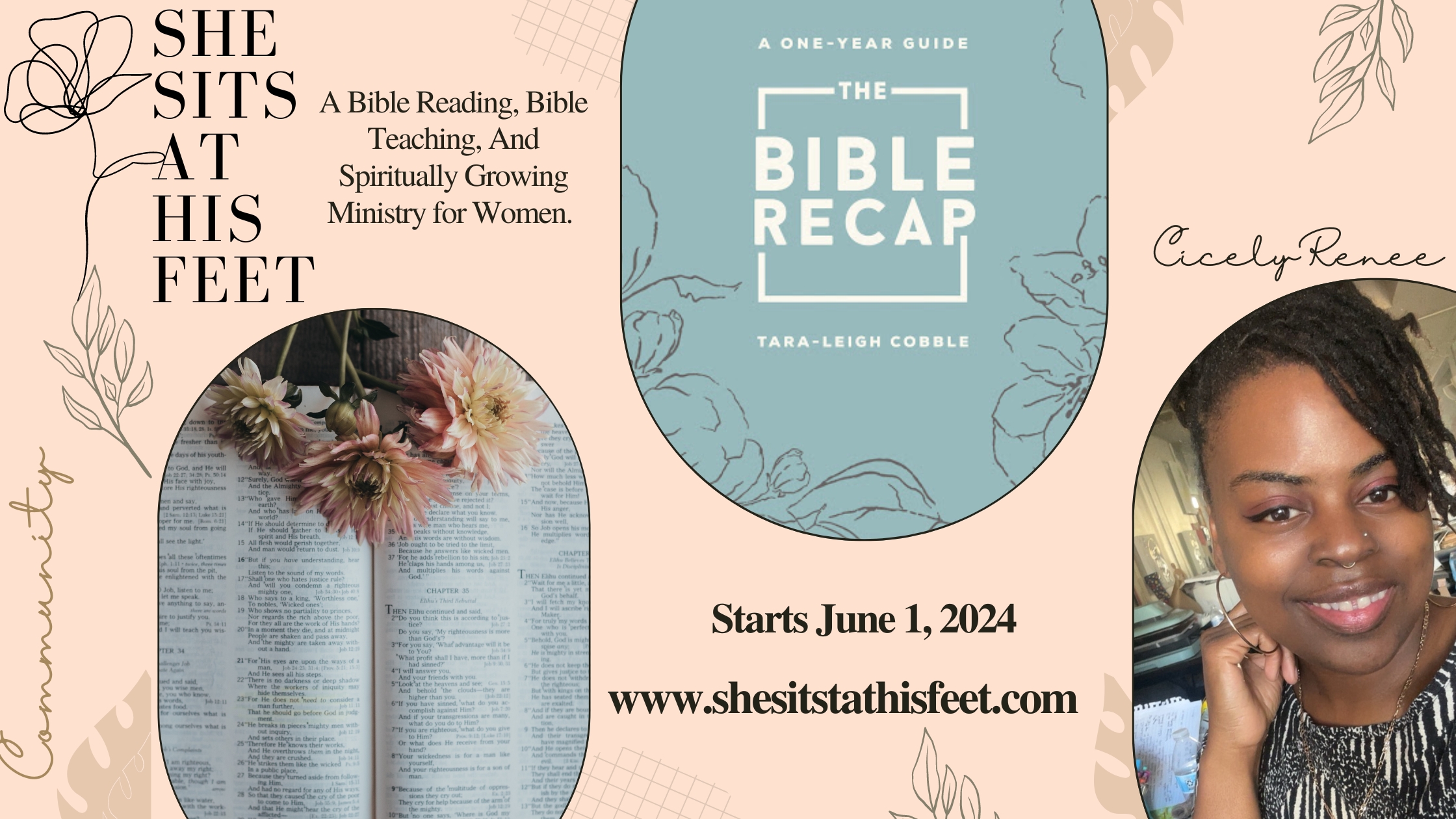
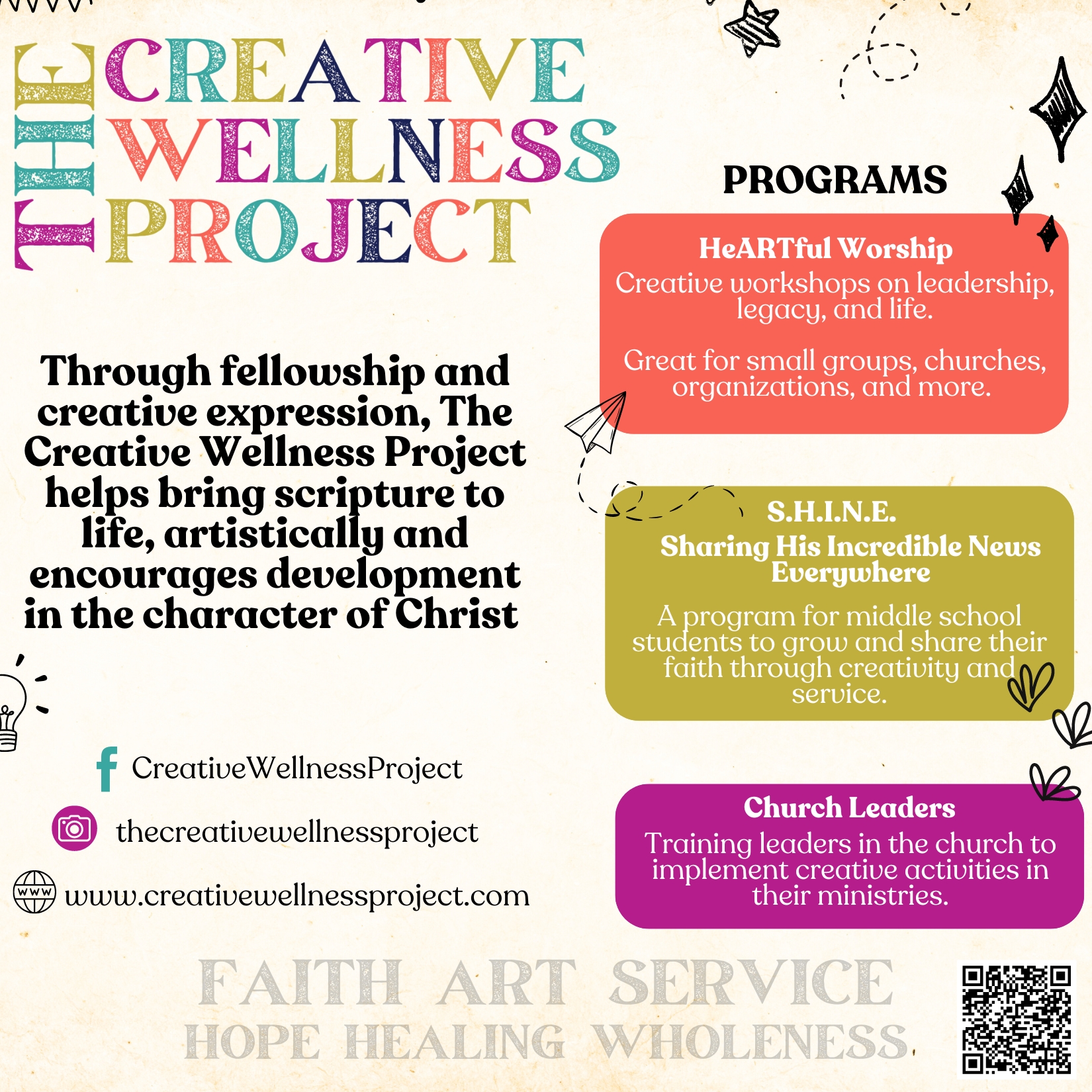






Leave a Reply